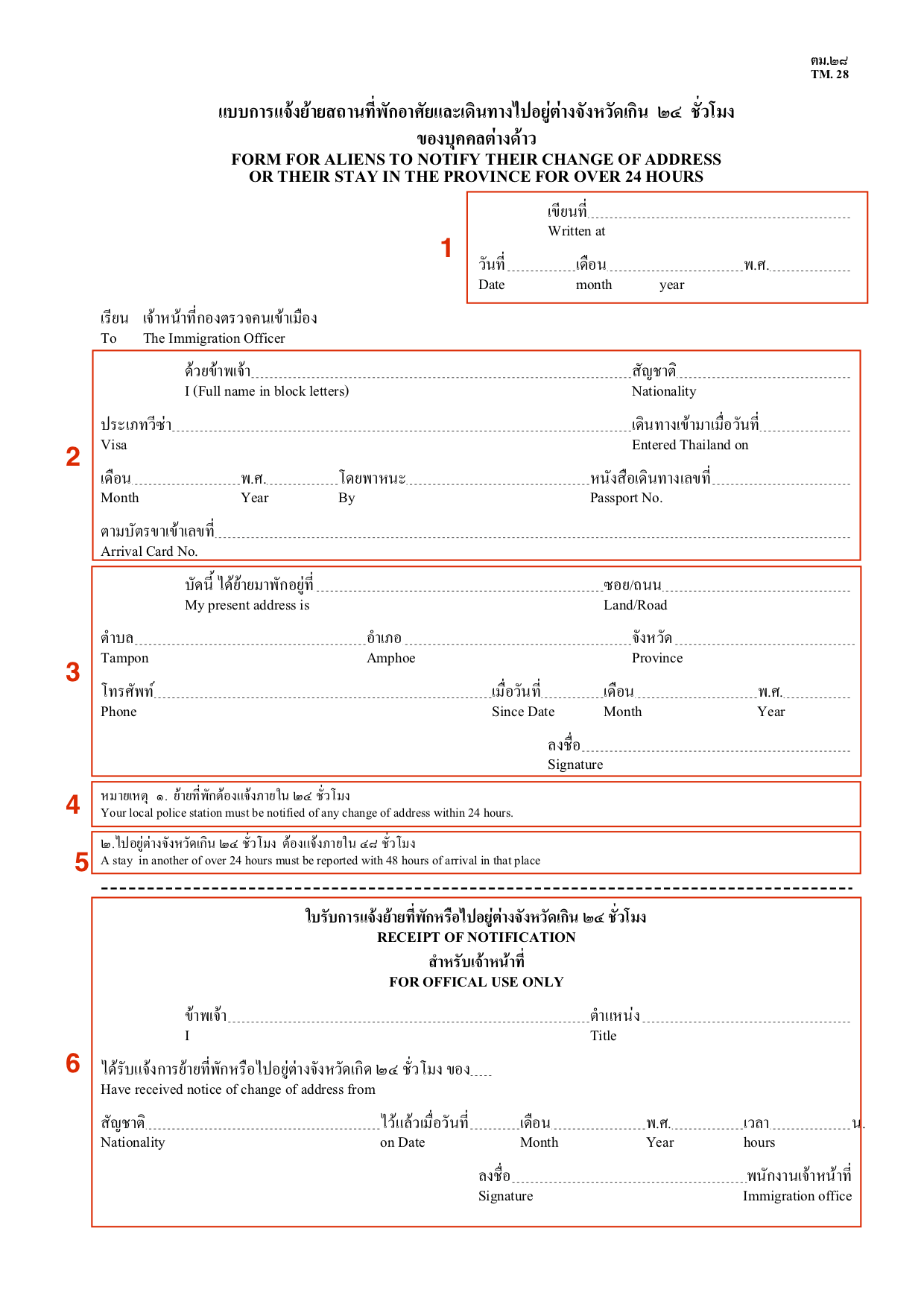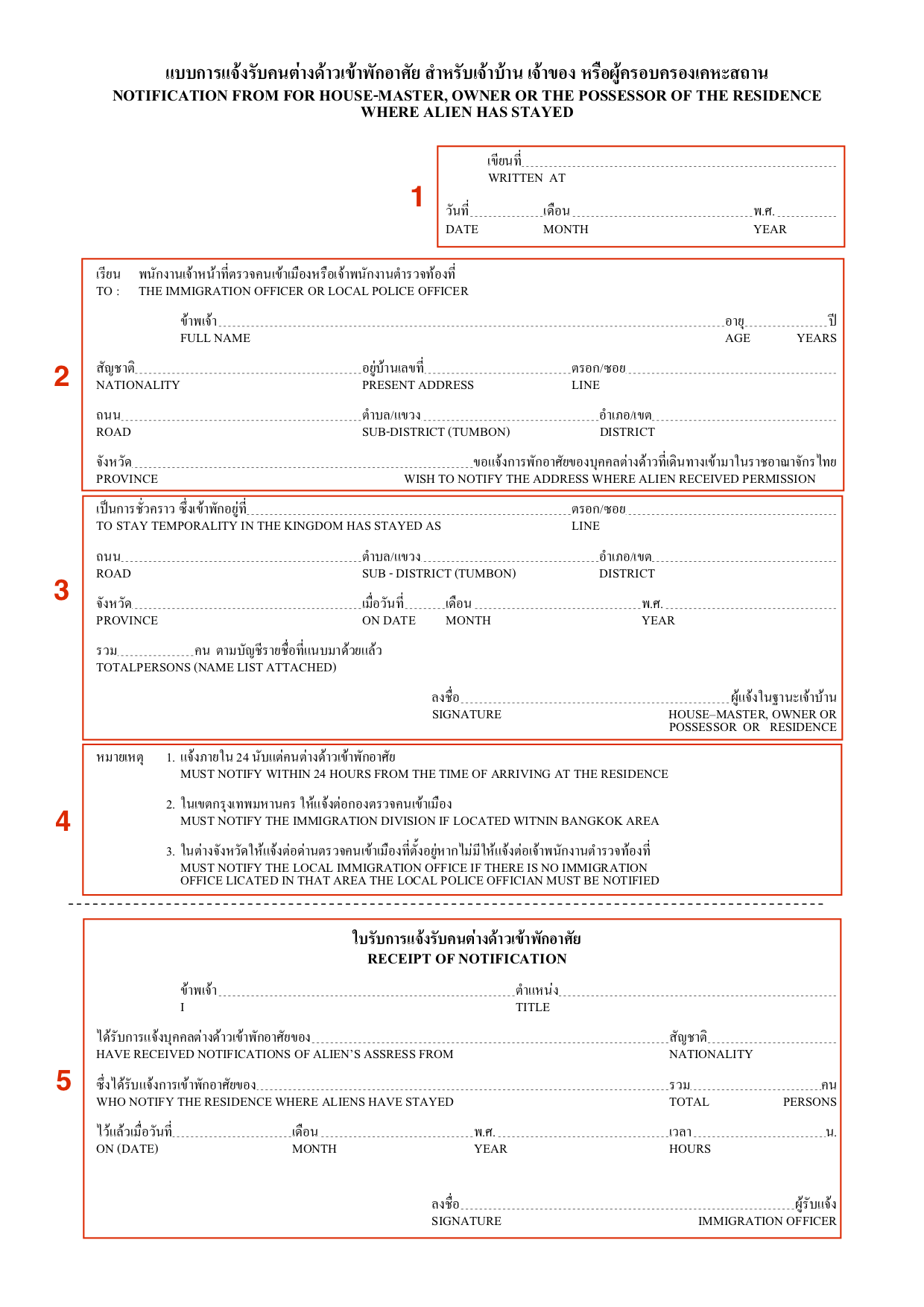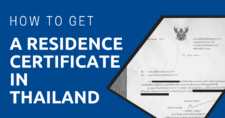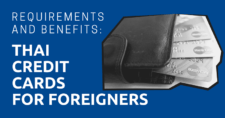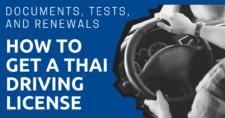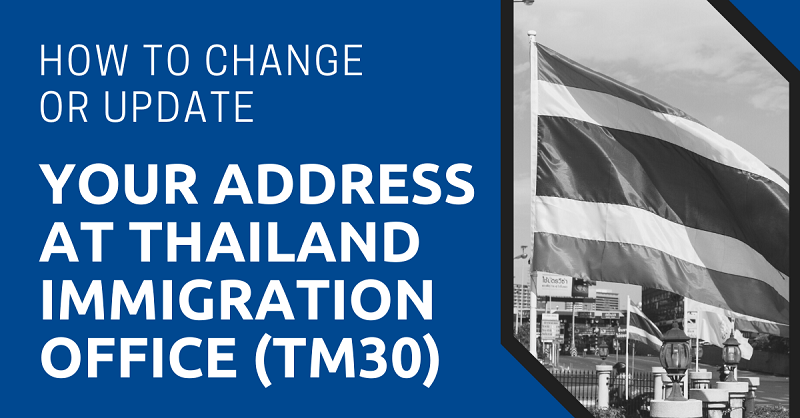
Whether you’re moving from one location to another in the same province, or moving to a new province altogether, you need to notify immigration of your change of address in Thailand using Form TM.30.
Changing your address at your local Thai immigration office isn’t the most challenging task, but you should know what to expect ahead of time as it could save you a lot of time.
"*" indicates required fields
Disclaimer: This article may include links to products or services offered by ExpatDen’s partners, which give us commissions when you click on them. Although this may influence how they appear in the text, we only recommend solutions that we would use in your situation. Read more in our Advertising Disclosure.
Contents
- Does this Guide Apply to All Immigration Offices in Thailand?
- Who Need to Do It?
- Who’s Responsible to Notify Immigration?
- When Should You Notify Immigration?
- Why is it Important?
- Documents
- How to Change Your Address
- Can You File Form TM.30 Online?
- How Long Does Changing Your Address Take?
- Fines for Not Changing Your Address Within 24 Hours
- Now, on to You
Does this Guide Apply to All Immigration Offices in Thailand?
As usual, each immigration office (and officer) in Thailand play by their own rules.
That said, you can use this guide to help you change your address in most provinces, but it’s best to check with your local immigration office to find out their specific requirements.
Who Need to Do It?
Any expat granted permission to stay in Thailand (not for tourism) must notify the Thai immigration office closest to them when they move to a new location.
Who’s Responsible to Notify Immigration?
There seems to be a grey area about who’s actually responsible for notifying your change of address at the Thailand immigration office.
The Thai law states that:
House owners, heads of household, landlords or managers of hotels who accommodate foreign nationals on a temporary basis who stay in the kingdom legally, must notify the local immigration authorities within 24 hours from the time of arrival of the foreign national.” – Section 38 of the 1979 Immigration Act
However, I have never heard of any cases where the house owner went to immigration to notify the authorities that an expat was living in their house or condo on their own accord.
Some owners don’t even know about this rule. And if they do, they simply don’t care until you bring it up. So, it’s important for you to take care of it yourself. Because in the end, it’ll be you who has to pay the fine for not doing so.
When Should You Notify Immigration?
ASAP. There is a THB200 fine per day, not to exceed THB2,000, for not notifying immigration upon your change of address.
But because it’s almost impossible to notify immigration of your new address while you’re moving and settling in, it’s usually best to plan your move the day after you get the keys to your new place. This way, on the first day of your lease, you can focus on changing your address.
The other option would be to pay the THB2,000 fine and notify immigration on your next 90-day check-in, which would be more convenient but more costly.
Why is it Important?
Aside from avoiding the fines and possible legal troubles, there are some more practical benefits to notifying immigration of your change of address.
After you’ve changed your address you can get your Residence Certificate, which will come in handy when you need to get your Thai driving license, buy a car, or open a bank account.
Documents
Here are the documents you’ll need to notify most Thai Immigration offices of your change of address.
- your passport
- copy of your passport’s photo page
- copy of your visa
- copy of your TM.6 Departure Card
- your house/condo lease with your name on it (signed and dated by you and the owner)
- copy of your house/condo lease with your name on it (signed and dated by you)
- copy of the owner’s blue house book with the address of where you’re staying (signed by the owner)
- TM.28 (downloadable form)
- TM.30 (downloadable form)
If you don’t have copies of these documents, there is a photocopier at most Thai immigration offices throughout the country.
The TM.28 and TM.30 forms are also available at the office, but you should print and fill them out ahead of time.
How to Change Your Address
I’ll walk you through the same exact process I went through, so when you get to you’re local Thai immigration office, you’ll feel confident enough to go through the process.
Filling in Your TM Forms
When it comes to the TM.28 and TM.30 forms, you’ll have to handle the first, and the owner will have to handle the second.
If you don’t have a helpful owner, you may have to fill in their form and then have them sign it.
Form TM.28
Form TM.28 is your responsibility. You need to fill this out and sign it in blue ink. Here’s what you need to know about this form:
- Written at: This means where you are right now, filing in the form. Put the province name to play it safe. Also, add the date you are notifying Thai immigration of your address change.
- Your info: As noted, add your name in BLOCK LETTERS, nationality, what kind of visa you have, and the date you entered Thailand. You can find this date in the purple stamp on your TM.6 Departure Card. Fill in your passport number on the photo page of your passport and the Arrival Card number. You can find this number on the top right of your Departure Card (the other half of your Arrival Card, which immigration takes when you enter Thailand), just under the barcode.
- Your present address: This is for your new address. In other words, where you’re moving to, not where you’re moving from.
- Notifying local police: You’ll only have to notify your local police department of your address change if there are no Thai immigration offices nearby.
- Notifying immigration for short-term stays: You won’t have to worry about this section as well. Hotel managers and the like are supposed to notify Thai immigration if you stay at their place for more than 24 hours.
- Immigration officer’s section: Don’t touch this section. This is for the immigration officer to complete. After you’ve completed the process, the immigration officer will give this section back to you. Don’t lose it. If they haven’t done so, ask them to fold and staple it to the last page in your passport.
Form TM.30
The TM.30 form is your landlord’s responsibility. They’ll need to fill this out and sign it in blue ink.
Here’s what they need to know about this form:
- Written at: This means where the owner is right now, filing in the form. They have to date the form as well.
- Owner’s address: This section is not for the address of where you’ll be staying, unless you’ll be living with the owner. This address is where the owner lives. In other words, their residence.
- Tenant’s address: This section is for the house or condo address in which the owner has rented out to you.
- Notification: As mentioned at the beginning of this guide, owners are supposed to notify immigration of foreigners living at their place within 24 hours upon your arrival.
- Immigration officer’s section: Don’t touch this section. This is for the immigration officer to complete. They keep this section.
Going to the Thai Immigration Office
Once you’ve gathered all your documents, you’ll need to go to your local Thai immigration office. To find the closest one to you, search “Thai immigration office” on Google Maps.
I would go right after lunch, at 1:00 PM. This way the morning rush has cleared out.
Getting Your Queue Number
When you get inside the immigration office, go straight to the help desk. The person working behind the desk will check your documents and then give you a queue number.
At some Thai immigration offices, you may have to get a queue number yourself from the kiosk.
If you think you’re going to need help at any time, you could always bring a Thai translator if you don’t speak Thai.
Seeing the Immigration Officer
When you get to the immigration officer’s desk or window, they’ll go through your paperwork to make sure you have all the documents and that they’re filled out correctly.
Once that’s done, you’ll get your Receipt of Notification (the bottom half of your TM.28 form). Ask the immigration officer to fold and staple the receipt onto the last page of your passport.
You’re free to go after that, unless you have to pay a fine (see blow).
Can You File Form TM.30 Online?
Yes, you can now file Form TM.30 online. But I’d beware of all the websites that are advertising their services for a fee.
You can easily file the form yourself. To do so, visit the official Thai Immigration website and select the option for TM.30. You’ll have to create an account, but registration takes just a few minutes.
Once you log in, fill out Form TM.30 and upload the required documents. You’ll get an approval notification sent to your email after a few days. Print the Receipt of Notification and staple it to your passport.
How Long Does Changing Your Address Take?
If you show up with the right documents, you should be done within an hour.
Because there are fewer people who show up to immigration to change their address than, say, do their 90-day check-in, you won’t have to wait very long.
Fines for Not Changing Your Address Within 24 Hours
If you or your house or condo owner don’t notify immigration within 24 hours of you moving into your new place, the owner is supposed to pay a fine of THB200 per day, not to exceed THB2,000.
The truth is, it’s nearly impossible for anyone to notify immigration within 24 hours of an expat moving into their residence. In fact, a lot of homeowners feel this law was set in place just to get money from them.
Also, not all homeowners will be willing to pay the fine on your behalf. This is where the catch-22 comes in. Because if they don’t pay the fine, you can’t officially change your address. So what winds up happening is that you have to pay the fine.
Now, on to You
That’s how you change your address at your local Thai immigration office.
As I said earlier, it’s one of the easier matters to handle while in Thailand, and as long as you have all the documents, you should be done within an hour.


